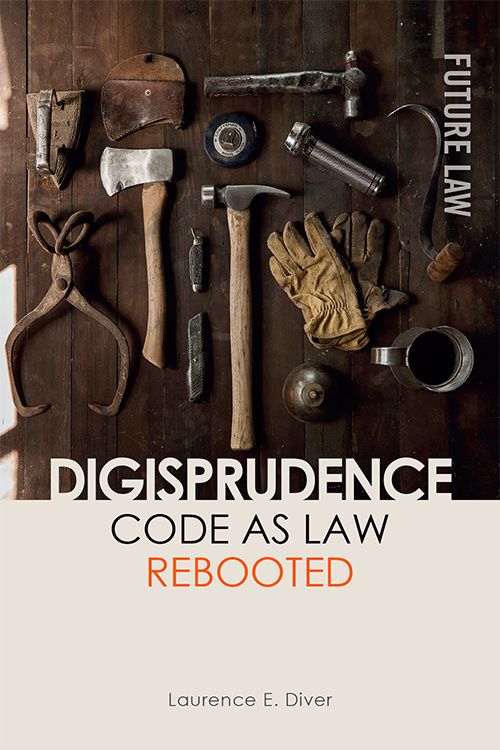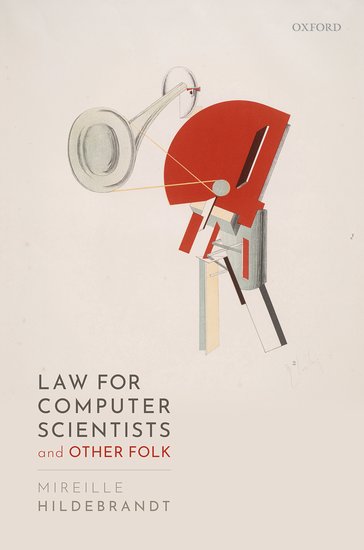Please find below the relevant work of the COHUBICOL researchers and affiliates.
Co-authored project outputsPermalink
Co-authored outputs are gathered together at publications.cohubicol.com.
-
Research Study on Computational Law (2024)
This Research Study is part of the core output of the COHUBICOL project. It is the project’s second Research Study, focusing on the potential impact of data- and code-driven technologies on law, the Rule of Law and legal protection.
-
Typology of Legal Technologies (2022)
The Typology is an analysis of a curated set of typical legal technologies (applications, scientific papers, and datasets). We have assessed these systems based on the claims made by their developers and/or providers, and on the substantiation of those claims, with an eye to the kind of legal impact their deployment might have.
-
Research Study on Text-driven Law (draft 2021, final version 2023)
This Research Study is part of the core output of the COHUBICOL project. It presents the first jointly developed intermediary result of the project, focused on the kind of legal protection that is made possible by text-driven normativity.
BooksPermalink
ProceedingsPermalink
- 2022 Desara Dushi, Francesca Naretto, Cecilia Panigutti and Francesca Pratesi, Proceedings of the Workshop on Imagining the AI Landscape after the AI Act (IAIL 2022) co-located with 1st International Conference on Hybrid Human-Artificial Intelligence (HHAI 2022)
Articles and chaptersPermalink
- 2024 Emilie Van den Hoven, “The Computational Turn in Customary International Law”. In International Law and Technological Change: Testing the Adaptability of International Law, edited by E Fromageau and I Couzigou.(Edward Elgar Press: 2024) (Pre-print to follow).
- 2023 Mireille Hildebrandt, ‘Grounding Computational “Law” in Legal Education and Professional Legal Training’. In Research Handbook on Law and Technology, edited by Bartosz Brozek, Olia Kanevskiaia, and Przemyslaw Palka, 99–127. Edward Elgar Publishing.
- 2023 Mireille Hildebrandt, Text-Driven Jurisdiction in Cyberspace in M Ó Floinn, L Farmer, J Hörnle, D Ormerod QC (eds.), Transformations in Criminal Jurisdiction: Extraterritoriality and Enforcement (Hart Publishing).
- 2023 Mireille Hildebrandt, Ground-Truthing in the European Health Data Space (in Proceedings of the 16th International Joint Conference on Biomedical Engineering Systems and Technologies. Scitepress, for those without access a pre-print is available at ArXiV.
- 2023 Mireille Hildebrandt, Boundary Work between Computational “Law” and “Law as-We-Know-It” in D Curtin & M Catanzariti (eds.), Data at the Boundaries of European Law (Oxford University Press) (pre-print of a previous version available on ArXiV).
- 2023 Laurence Diver and Pauline McBride, ChatGPT and the Future of Law. Journal of the Law Society of Scotland 68, no. 8.
- 2023 Gianmarco Gori, The Legal Protection Debt of Training Datasets. HumanE AI Net, European Union’s Horizon 2020 Research and Innovation Programme.
- 2023 Pauline McBride and Masha Medvedeva, Legal Judgment Prediction: If You’re Going to Do It Do It Right. In Proceedings of the Natural Legal Language Processing Workshop 2023, pages 73–84, Singapore. Association for Computational Linguistics.
- 2023 Paulus Meessen, On Normative Arrows and Comparing Tax Automation Systems. In Proceedings of the Nineteenth International Conference on Artificial Intelligence and Law, 432–36. ICAIL ’23. New York, NY, USA: Association for Computing Machinery.
- 2022 Mireille Hildebrandt, Qualification and Quantification in Machine Learning. From Explanation to Explication, Sociologica.
- 2022 Paul W. Grimm, Maura R. Grossman, Sabine Gless and Mireille Hildebrandt, Artificial Justice: The Quandary of AI in the Courtroom, Judicature (published by Bolch Judicial Institute, Duke Law School).
- 2022 Emilie Van den Hoven, Making the Legal World: Normativity and International Computational Law, Communitas (Special issue on Normativité et intelligence artificielle).
- 2022 Laurence Diver and Pauline McBride, Argument by Numbers: The Normative Impact of Statistical Legal Tech, Communitas (Special issue on Normativité et intelligence artificielle).
- 2022 Laurence Diver and Pauline McBride, High Tech, Low Fidelity? Statistical Legal Tech and the Rule of Law, Verfassungsblog: On Matters Constitutional (Symposium on The Rule of Law versus the Rule of the Algorithm).
- 2022 Laurence Diver, Karen Yeung and Martin Lodge (eds) Algorithmic Regulation reviewed by Laurence Diver, Prometheus.
- 2022 Mireille Hildebrandt, The Issue of Proxies and Choice Architectures. Why EU Law Matters for Recommender Systems, Frontiers in Artificial Intelligence.
- 2022 Tatiana Duarte, Google and Apple Exposure Notifications System: Exposure Notifications or Notified Exposures?, in Privacy Technologies and Policy, ed. Agnieszka Gryszczyńska et al., Lecture Notes in Computer Science (Cham: Springer International Publishing, 2022), 99–118.
- 2022 Tatiana Duarte, Book Review, European Data Protection Law Review. 8, no. 1 (2022): 156–58.
- 2021 Mireille Hildebrandt, Preface on navigable and unregulable space(s), in Giorgia Bevilacqua (ed.) Human security in navigable spaces: Common challenges and new trends (Editoriale Scientifica).
- 2021 Mireille Hildebrandt, Discrimination, Data-driven AI Systems and Practical Reason, European Data Protection Law Review.
- 2021 Mireille Hildebrandt, The issue of bias. The Framing Powers of Machine Learning, in Marcello Pelillo, Teresa Scantamburlo (eds.) Machines We Trust. Perspectives on Dependable AI (MIT Press).
- 2021 Mireille Hildebrandt, Algometrisch strafrecht: spiegel of echoput. Kunstmatige intelligentie in het strafrecht, Delikt en Delinkwent.
- 2021 Laurence Diver, Interpreting the Rule(s) of Code: Performance, Performativity, and Production, MIT Computational Law Report.
- 2021 Mireille Hildebrandt, Understanding Law and the Rule of Law: A Plea to Augment CS Curricula, Communications of the ACM.
- 2021 Emilie van den Hoven, Hermeneutical injustice and the computational turn in law, Journal of Cross-disciplinary Research in Computational Law.
- 2021 Laurence Diver, Digisprudence: the design of legitimate code, Law, Innovation and Technology 13, no. 2 (3 July 2021): 325-354.
- 2020 Mireille Hildebrandt, Code-Driven Law. Freezing the Future and Scaling the Past, in Simon Deakin and Christopher Markou (eds.), Is Law Computable? Critical Perspectives of Law and Artificial Intelligence (Oxford: Hart Publishing).
- 2020 Laurence Diver, Computational legalism and the affordance of delay in law, Journal of Cross-disciplinary Research in Computational Law 1, no 1.
- 2020 Mireille Hildebrandt, The adaptive nature of text-driven law, Journal of Cross-Disciplinary Research in Computational Law.
- 2020 Mireille Hildebrandt, A Philosophy of Technology for Computational Law, draft chapter in David Mangan, Catherine Easton, Daithí Mac Síthigh (eds.) The Philosophical Foundations of Information Technology Law (Oxford University Press).
- 2020 Mireille Hildebrandt, The Artificial Intelligence of European Union Law, German Law Journal.
- 2020 Mireille Hildebrandt, Computationeel Tegenspel: De Nieuwe Ruimte van Het Recht, Actioma
- 2020 Laurence Diver, Júlia Zomignani Barboza, Lina Jamsontaitè-Zaniewicz, Aid and AI: The Challenge of Reconciling Humanitarian Principles and Data Protection. In Privacy and Identity Management. Data for Better Living: AI and Privacy, edited by Michael Friedewald, Melek Önen, Eva Lievens, Stephan Krenn, and Samuel Fricker, 576:161–76. IFIP Advances in Information and Communication Technology.
- 2019 Mireille Hildebrandt, Privacy as the Protection of the Incomputable Self. From Agnostic to Agonistic Machine Learning, Theoretical Inquiries in law

